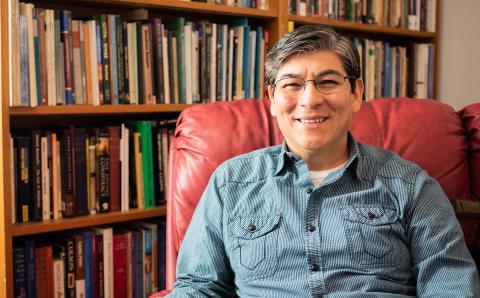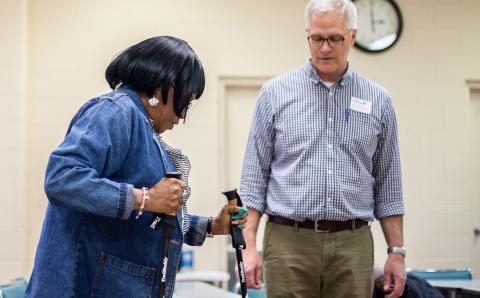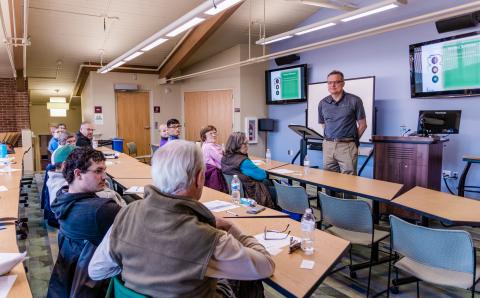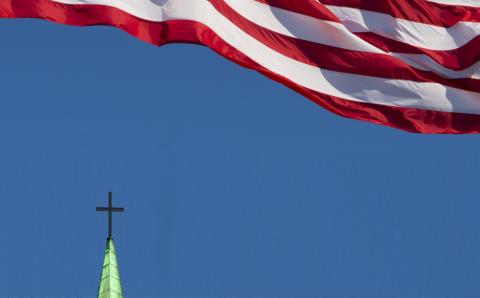The Christian Reformed Church in North America will study “the advisability, legality, and morality of ecclesiastical (non-civil) marriage.” Synod 2019 approved appointing a task force to do this, to report to either Synod 2021 or Synod 2022.
Synod agreed the task force will include at least one person with legal expertise in the United States and one with such expertise in Canada; a person or persons with pastoral experience in this area; a person or persons with cross-cultural experience; and a person or persons with experience in pensions and end-of-life care issues in Canada and in the United States.
The names of the people who might fill those roles will be presented to synod yet this week.
Classis Georgetown had asked synod to appoint this committee to “help congregations and pastors better minister to couples seeking marriage in situations where civil marriage creates financial problems.” Synod considered the study necessary because churches are being confronted with questions and situations, and pastors and elders need guidance on how to respond.
Phil Westra, Classis Atlantic Northeast, said “pastors and elders already have adequate guidance from the Word of God and from our confessions.” He said the questions to be considered by the task force amount to asking if it’s morally advisable for people to deceive our governments about their marital status. “Honesty is an imperative throughout scripture … we should avoid lying and deceit of any kind,” Westra said. Citing a 2012 report from the U.S. Social Security Administration, Westra said up to $8.2 billion has been paid to couples misrepresenting their marital status. “The report called that fraud,” Westra said.
Greg Janke, Classis Chicago South said it isn’t quite as simple as that. There are situations in which a state marriage might not be possible, such as if couples do not have birth certificates from their home countries, he said. “There are many sorts of different situations where ecclesiastical marriages may be needed.”
“When it comes to ethics and morality, things always seem really clear until you’re presented with life situations,” said Scott Vander Ploeg, Classis Southeast U.S. “I think especially as our churches are being presented with a variety of situations coming from different cultures and backgrounds ... the clarity that we once had is fading.”
Gerald Koning, Classis Georgetown, described a specific example of this in church-planting efforts among East African refugees. A cultural marriage took place back home, but because the individuals do not have birth certificates, they are unable to have a legal marriage in the United States. Their Sudanese families recognize them as married, the state does not. What does the church do? Having “a wider group would help us think about these issues.”
Don Bemis, Classis Holland, said appointing the task force wouldn’t tie synod to anything in particular. “It’s not a proposal to take action in any direction at this time. I understand the concern because often something is called a ‘study’ and it ends up being something else. But if this is done as a study for us to evaluate later and make the proper decision, I believe that’s a good thing.”
Andy Hanson, Classis California South, said the clarity is necessary because of the seeming growing divide between what the state recognizes as “marriage” and how the church sees marriage.
“Currently, the government recognizes marriages that the church does not,” Hanson said. “If I say I’m married according to the church, does that necessarily mean I have to be married according to the state? I think we also need to ask the question: Why is the state involved in our marriages to begin with?” If marriage is a covenant between a man and a woman and God, he asked, then what is the purpose of a license from the state? He said he hoped the task force would look at and address whether the state is overstepping its bounds of authority in licensing marriages.
Synod 2019 is meeting at Calvin College in Grand Rapids, Mich., from June 14-20. For continuous coverage from our award-winning news team, download the Banner app on your mobile device or follow The Banner Magazine on Facebook or @crcbanner on Twitter. You can find more tweeting by following hashtag #crcsynod. News stories will be posted on The Banner’s dedicated Synod web page several times daily. Unless noted otherwise, all photographs are by Karen Huttenga.
About the Author
Alissa Vernon is the news editor for The Banner.









